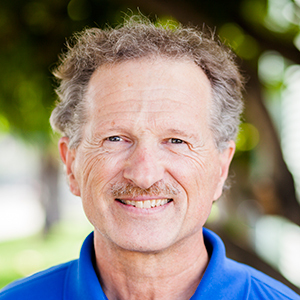
Why Are Progressive Christians Attracted to Universalism? How a Distorted View of God Distorts Our View of Good
The new issue of  Credo Magazine focuses on the question, “Will all be saved?” The following is an excerpt from Scott Smith’s article, “Why Are Progressive Christians Attracted to Universalism? How a Distorted View of God Distorts Our View of Good?” Scott Smith received his Ph.D. in Religion and Social Ethics from the University of Southern California and serves as a professor of Christian Apologetics at Biola University. He is the author of Authentically Emergent: In Search of a Truly Progressive Christianity (Cascade Books, 2018), and other books and essay. Smith has written extensively on the truth claims of the emergent church movement.
Credo Magazine focuses on the question, “Will all be saved?” The following is an excerpt from Scott Smith’s article, “Why Are Progressive Christians Attracted to Universalism? How a Distorted View of God Distorts Our View of Good?” Scott Smith received his Ph.D. in Religion and Social Ethics from the University of Southern California and serves as a professor of Christian Apologetics at Biola University. He is the author of Authentically Emergent: In Search of a Truly Progressive Christianity (Cascade Books, 2018), and other books and essay. Smith has written extensively on the truth claims of the emergent church movement.
Why does it seem progressive Christians are drawn to a universal salvation for all people? There could be several reasons, such as religious pluralism, on which everyone has their own interpretations of God (or, “religious reality”). The key to “salvation” on such a view is moral transformation, which is possible in all the world religions.
Still, there could be other reasons for this attraction. It might be a reaction against evangelicals’ exclusive claim that Jesus is the only way to God, which might strike some progressives as imperialistic. In addition, it might be due to shifts in their views of the nature of what is real regarding human beings, sin, our core need, and more.
Now, all these positions are involved with a particular group of progressives who used to be called “emergents,” namely, Brian McLaren, Tony Jones, Doug Pagitt, and Rob Bell. Since the emerging church faded from evangelicals’ attention, their influence has morphed and actually grown. They now have greater platforms for communicating their views.[1] Moreover, they have embraced being progressives. I think their views can provide an example for us of why progressives are attracted to universalism.
To help explore this question, first I will sketch some of their newer, pertinent views that illustrate how they fit with universalism. These positions will include not only their epistemological views, but also, even more importantly, their shifts away from traditional, orthodox Christian positions of the nature of what is real to a holistic, panentheistic view of God and His creation.[2] Second, I will assess selected views, offering some suggestions for how to respond to these points.[3]
Emergents 2.0
McLaren and these former emergents argue that everyone has a particular standpoint from which they come to interpret and know the world. Moreover, we are shaped, or “situated,” so deeply by our cultural and familial upbringing, life experiences, historical location, and more that we cannot gain a universal, unbiased viewpoint and know reality as it truly is, even about the truth of Christianity. Instead, all people interpret what is real from their respective interpretive “grids.”
Religiously, then, Christians, as well as Buddhists, Muslims, Hindus, and everyone else have their own interpretations of God (or, “religious reality”), and no one has direct access to the truth (i.e., the way things really are) religiously. This view is much like that of John Hick, one of the founders of religious pluralism.[4] Though religions have their various interpretations, still, for Hick all religions aim at moral transformation, and so he redefines salvation as such. However, he claims Christians do not exhibit superior moral lives than that of other religious adherents. Thus, “salvation” is available in all the world religions.
For McLaren, moral transformation occurs as people live out Jesus’ story. As such, “salvation” is not limited to just those who identify as Christians. There can be Muslims, Jews, and Christians throwing a party in heaven; there can be Buddhist Christians; and more.[5]
In A New Kind of Christianity, Brian McLaren also claims the gospel we have received has been corrupted by Greco-Roman and modern influences.[6] One corrupting factor is the adoption of many dualisms, such as body vs. soul, heaven vs. hell, saved vs. unsaved, civilized vs. barbarians, and many more. According to him, Greek thinking introduced these many dualisms, and particularly body-soul dualism undermines what he sees as the Jewish emphasis upon the unity of the whole person.[7]
For McLaren, many Christians’ emphasis upon saving the soul so it goes to heaven when the body dies is linked to the (supposed) Platonic emphasis of the inherent superiority of the immaterial over the material.[8] However, these attitudes denigrate the body as God’s good creation, implicitly treating it as bad. Moreover, he thinks souls are static and therefore cannot grow, change, or have stories told about them.[9]
Instead of humans being a unity of body and soul (i.e., material and immaterial), McLaren and others adopt a holistic, physicalist view of humans. On this view, humans are made of one kind of thing, namely, physical stuff.[10] Instead of an essential nature (the soul) uniting all our parts, now our unity is found in our narrative, which is to be shaped according to the master story of the Christian community, the story of Jesus.[11] Unlike souls, our stories develop as we become more like Christ.
If humans are just physical beings, then several other core doctrines would seem to need to be changed. For instance, sin cannot be fundamentally a soulish problem that corrupts the entire person. Now, the Bible speaks of the heart (the core of our being; that from which we truly live, will, and more) as more deceitful than all else and desperately sick (Jer. 17:9). Moreover, the wages of sin is death, i.e., separation from God, and eventually physical death (Rom. 6:23). However, as Pagitt explains, sin is a matter of disintegration of relationships, of ourselves in relation to one another, creation, and God. For him and others, original sin is a mistaken doctrine.[12] It is not that sin separates us from God; instead, we are already “in” God.
*Read Dr. Smith’s entire article in the latest issue: Will all be Saved?

